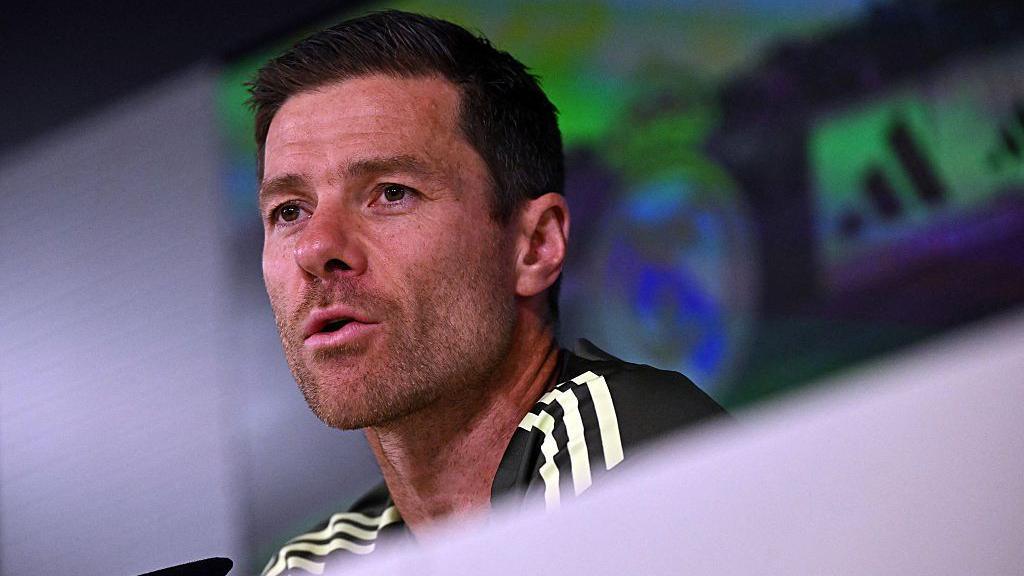Real Madrid’s Stunning New Era Demands Ego Sacrifice
A Fresh Start After a Humbling Moment
Real Madrid‘s new chapter began with a sobering wake-up call—a crushing 4-0 defeat to Paris Saint-Germain in the Club World Cup semi-finals. This loss wasn’t just a stumble; it was a turning point. Under new manager Xabi Alonso, the club has embraced a reset, leaving past glories behind. Seven years after honing his craft with youth teams, Alonso arrives at the Santiago Bernabéu armed with a meticulously crafted vision, shaped by the lessons of legendary mentors like Pep Guardiola, José Mourinho, and Carlo Ancelotti.
The challenge ahead is monumental: transforming a squad known for its star power into a unified team where individual talent serves the collective cause. For Real Madrid, success in this new era will be defined by adaptability, discipline, and—most crucially—sacrifice.
The Tactical Revolution: From Individualism to Collective Strength
Alonso’s philosophy marks a stark departure from the unchecked individualism that once defined Real Madrid. Modern football demands structure, and his approach emphasizes positional play, structured pressing, and defensive discipline. A glimpse of this system was visible in their 4-0 friendly win over Tirol, where the high press wasn’t just about winning the ball—it was a tactical move to shield key attackers like Vinícius Júnior and Kylian Mbappé from excessive defensive workloads.
But will the stars buy in? Real Madrid has long been a club where individual brilliance reigns. Legends like Cristiano Ronaldo achieved greatness by balancing personal accolades with team success. Now, Alonso must navigate a delicate tightrope—convincing today’s superstars that embracing selflessness leads to greater glory. The question remains: If they resist, will he have the authority to make tough decisions?
Vinícius and Mbappé: Can Egos Align?
Vinícius Júnior dominated headlines this summer with contract disputes and fluctuating form. While he publicly declared, This is the club of my life, negotiations stalled after Real Madrid offered terms below his expectations. On the pitch, his role is evolving. Under Ancelotti, he enjoyed almost total attacking freedom. Now, Alonso’s system requires defensive discipline—especially alongside Mbappé, whose relationship with Vinícius remains a work in progress, both tactically and personally.
Last season’s dressing room tensions reportedly made it one of Ancelotti’s toughest challenges. Alonso must ensure his stars forge synergy rather than friction. If they do, the duo could become unstoppable; if not, the project risks unraveling.
Bellingham and Alexander-Arnold: Defining New Responsibilities
Jude Bellingham’s debut season at Real Madrid was a mixed bag—his talent undeniable, his consistency hampered by injuries and an undefined role. Alonso plans to refine his position, placing him closer to the penalty area where he can enhance link-ups with Vinícius and Mbappé.
Meanwhile, Trent Alexander-Arnold’s arrival ignites a tactical battle with Dani Carvajal for the right-back spot. His world-class passing and crossing could transform Real Madrid’s attacking play, but La Liga’s tactical sophistication means defensive lapses won’t go unpunished. His adaptation will be crucial to Alonso’s system.
Life After Kroos: The Midfield Rebuild
Replacing Toni Kroos is no easy feat; no single player can replicate his influence. Dean Huijsen, signed from Bournemouth, steps into the pivot role, dictating play with precise distribution. Aurélien Tchouaméni adds versatility, shielding the defense or pushing forward to dominate midfield battles.
Then there’s Arda Güler, once viewed as a classic No. 10, now reinvented as a dynamic box-to-box midfielder. His performance against Tirol—where he created four chances and assisted Mbappé—hints at a transformative impact in Alonso’s setup.
Rodrygo’s Uncertain Future
Rodrygo faces intense competition following Real Madrid’s £150 million influx of talent, including Argentine prodigy Franco Mastantuono. The 4-3-3 system might suit him, drawing parallels to Lamine Yamal’s role at Barcelona, but adaptation won’t happen overnight—especially after limited preseason involvement.
Despite interest from Manchester City (Pep Guardiola reportedly called him last year), no formal offers have materialized. Real Madrid values him at over £85 million, and while he hasn’t requested a transfer, his future remains uncertain.
Conclusion: A New Chant for the Bernabéu
Real Madrid’s new era hinges on a simple yet profound shift—stars must place the team above personal ambition. Alonso’s system thrives on discipline, pressing, and collective effort. If Mbappé, Vinícius, and Bellingham embrace this philosophy, Real Madrid could ascend to new heights. If not, internal clashes could derail progress.
The Santiago Bernabéu has long echoed with roars celebrating individual brilliance. Now, it awaits a new anthem—one of unity. The question is: Will Real Madrid’s stars answer the call?
